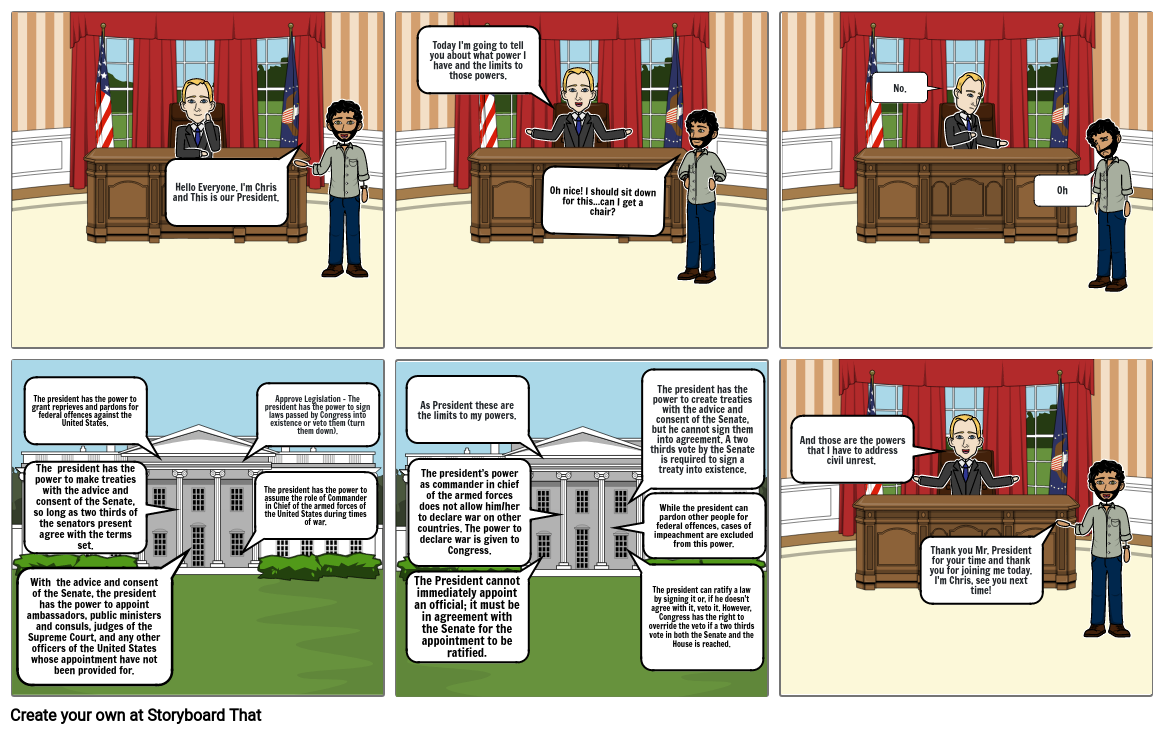Presidential Powers during civil unrest

Storyboard Text
- Hello Everyone. I'm Chris and This is our President.
- Today I'm going to tell you about what power I have and the limits to those powers.
- Oh nice! I should sit down for this...can I get a chair?
- No.
- Oh
- With the advice and consent of the Senate, the president has the power to appoint ambassadors, public ministers and consuls, judges of the Supreme Court, and any other officers of the United States whose appointment have not been provided for.
- The president has the power to grant reprieves and pardons for federal offences against the United States.
- The president has the power to make treaties with the advice and consent of the Senate, so long as two thirds of the senators present agree with the terms set.
- The president has the power to assume the role of Commander in Chief of the armed forces of the United States during times of war.
- Approve Legislation – The president has the power to sign laws passed by Congress into existence or veto them (turn them down).
- The President cannot immediately appoint an official; it must be in agreement with the Senate for the appointment to be ratified.
- As President these are the limits to my powers.
- The president’s power as commander in chief of the armed forces does not allow him/her to declare war on other countries. The power to declare war is given to Congress.
- While the president can pardon other people for federal offences, cases of impeachment are excluded from this power.
- The president can ratify a law by signing it or, if he doesn’t agree with it, veto it. However, Congress has the right to override the veto if a two thirds vote in both the Senate and the House is reached.
- The president has the power to create treaties with the advice and consent of the Senate, but he cannot sign them into agreement. A two thirds vote by the Senate is required to sign a treaty into existence.
- Thank you Mr. President for your time and thank you for joining me today. I'm Chris, see you next time!
- And those are the powers that I have to address civil unrest.
Over 30 Million Storyboards Created

